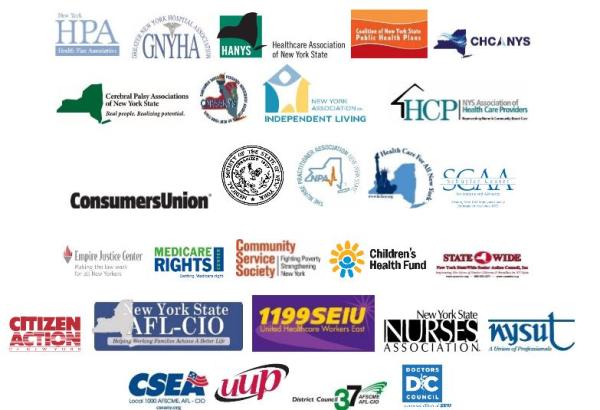
A number of unions and activist groups are worried that New York is receiving less money due to changes in the Federal government’s cost-sharing reduction payments (CSRs) (1), and others are concerned that New York will burn through its Children’s Health Insurance Program (CHIP) reserves, unless Congress comes to a budget agreement by tomorrow.
It's reasonable to believe that is a concern, if you look at simple numbers, where New York is clearly beating out most states. With Medicaid, for example, New York gets 10 percent of federal-share Medicaid spending with only 6 percent of the population. That means New York is more reliant on the federal government than it should be. It is even robbing other states although it is more wealthy. It may mean that New York must continue to rob other states to keep its health care funding. That's not fair, it is not tolerant, but it is politics.
The groups advocating for Congress to send more money right away are essentially saying that New York poor people are more important than poor people in other states. Frank Proscia, M.D., President of the labor union Doctors Council, part of the Service Employees International Union, writes,“Our nation’s most vulnerable patients - children and the underserved - will be disproportionally impacted without adequate federal funding to services that have been caught in a political stranglehold in Washington for too long. And our safety net hospitals - those hospitals that treat a disproportionately high number of uninsured and underinsured patients - are at risk of cutting services or shutting down without Disproportionate Share Hospital (DSH) funds."
Yet if poor people are really at risk because hospitals will be shut down due to lack of money, the worst thing that the state could do is add costs to health care, but that is exactly what Governor Andrew Cuomo did in his budget proposal on Tuesday.
Only one group seems to worry that the state is going to cause healthcare premiums to rise when New York already has some of the nation's highest health premiums and its quality does not match the spending. Bill Hammond, Director of Health Policy at Empire Center for Public Policy, wonders why, if health costs are really a concern, the Governor has proposed $750 million in "revenue actions" which will be taken from health insurers and drug manufacturers. Those costs are going to be passed along to hospitals and consumers at a time when Citizen Action of New York, Healthcare for All New York and a dozen others say there is already not enough money for New York and the federal government must do more.
Governor Cuomo will get his $750 million but it will make health care more expensive. The state, says Hammond, is literally taxing health care to pay for health care.
Nothing good will come of it. The percentage of private employers offering health benefits in New York was 60 percent a decade ago, now it is down to 44 percent. Premiums are the fifth highest in the nation. Adding another $750 million in cost is going to place it more out-of-reach to many businesses.
Instead of asking Washington, D.C. for more money, a solution would be lower taxes for New Yorkers, not another hidden increase by the state. Though New York is 6 percent of the population, it provides 8.3 percent of federal taxes. Obviously a rich, progressive state like New York recognizes that it will fund its poorer brethren, but Governor Cuomo should not want to saddle New York citizens with even more costs while pretending it is going to make health care more affordable.
NOTE:
(1) It provides healthcare subsidies for 750,000 moderate-income (not poor) New Yorkers.



